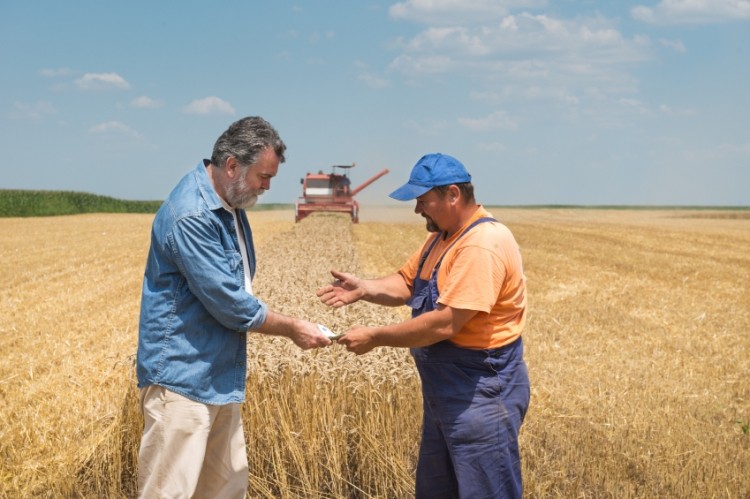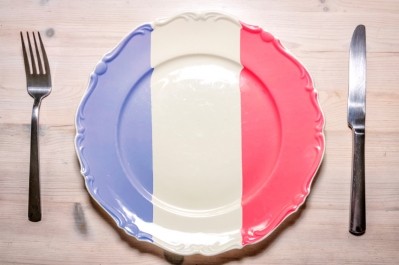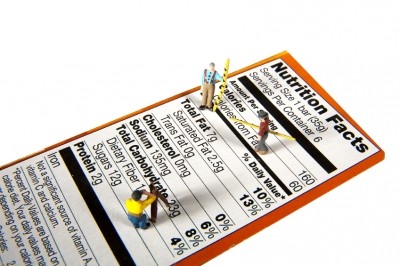French food prices to be linked with production costs

According to the proposal, the starting price for food in negotiations will now be set by the seller – in this case the farmer or relevant agricultural organisation – and not the manufacturer or retailer which was previously the case.
The minimum price at which certain food products can be sold by retailers - known as the ‘threshold for resale at a loss’, or SRP in French, and which is defined by French law - will also be raised.
France’s farmers, and to a lesser extent manufacturers, have been badly hit by squeezed margins from a supermarket price war that has lasted around four years.
According to insurance firm, the Agricultural Mutual Assistance Association (MSA), one third of farmers earned less than 350 euros ($403) a month in 2016.
Macron announced his intentions in a speech to farmers and industry stakeholders at Rungis wholesale food market, said to be the largest in the world, near Paris last week (11 October).
“We should allow farmers not to rely on subsidies anymore and therefore ensure than they be paid a fair amount for their work,” he said.
Agri-food industry stakeholders have been holding a series of technical meetings across France since this summer as part of the Etats Généraux de l’Alimentation, a review of the state of the food industry. The two main objectives of the review are to allow farmers a decent living wage based on fair prices, and to ensure each individual has access to healthy, sustainable and safe food.
No blank cheque
However, Macron has made it clear that he is not offering “a blank cheque” to the food industry so it can raise prices. Stakeholders must make efforts in terms of product quality, efficiency and their own professional organisations if they are to justify the higher price.
“Raising the threshold of resale at a loss without asking for any effort, no accompaniment, no transformation, is a form of blank cheque,” he said.
France’s National Association of Food Industries (ANIA), which two years ago warned that “the balance of power has collapsed to the point that the future of the French food chain… is in real danger”, welcomed the announcement.
Ending the price war would benefit everyone, allowing farmers, manufacturers and retailers to regain the growth and competitiveness needed for an innovative food chain, it said.
Its president Jean-Philippe Girard called Macron’s announcement “the foundation of a positive start for all players in the sector with a united desire to end the price war”.
Christel Delberghe, the Director for Competitiveness & Commercial Relations at European retail association EuroCommerce, said it welcomed the fact that stakeholders were able to agree on a proposal that they identified together as potentially suitable for their national context.
“This is all the more important in a country with a tradition of tensions between operators,” she added.
“Retailers will continue to compete but it is hoped that the measure will allow benefits to be passed on through the chain to farmers; this can only work if all operators in the chain play by the rules and deliver on transparency.”
Director of insights and communication at IRI, Jacques Dupré, also welcomed the agreement, saying that the price war had been“driving everyone into a wall”.
“In a way, the consumer will now be in solidarity with the producer,” he said.
“It’s not possible to have a win-win-win situation where farmers are paid more, manufacturers and retailers have higher margins and consumers pay less. But with the payment system and price war that we currently have, everyone loses.
“Farmers are not earning a living, manufacturers are losing because retailers are setting stricter pricing conditions and retailers are losing money because they are waging a war amongst themselves. And even if the consumer is better off economically, he or she often loses out in terms of quality.”
Solidarity with the producer
However, Dupré said that consumers probably won’t notice much of a difference in the price of their groceries.
Although placating France’s significant agricultural sector is important for Macron, he could not afford to alienate consumers by raising food prices either.
The idea is that retailers will raise the price of certain products that had hit the SRP threshold while lowering the price of other products for which their margins were higher, such as their private label ranges or regional products.
Retailers are now waiting to see how much the price rise will be. "I think that 10% is enough," president of supermarket Système U Serge Papin told French financial newspaper Les Echos.
If ANIA had one complaint to make, it was that the measures will not be applied immediately; trade negotiations are due to start at the end of the month but Macron’s law will take effect in 2018.
A victory for Macron
However, in a display of good will, Dupré said many of the actors have committed to applying the principles of Macron’s proposal during this year’s trade negotiations.
“Everyone seems satisfied. It’s strange but, on the whole, everyone seems satisfied."
“It’s a victory [for Macron] that is, for the moment, suspended in time because this is still all in principle," added Dupré. "But he has set the guiding principle and is ready to change the law so that food prices are set (or suggested) by producers and not buyers; so that special offers are constrained and that the minimum price is raised.”
Will farmers see the benefits?
However, French consumer rights group UFC Que Choisir questioned whether raising the minimum price supermarkets can charge will actually result in more money in farmers’ pockets.
The price war mainly concerns branded products of major manufacturers such as Nestlé and Coca-Cola, said its president, Alain Bazot, and does not concern unprocessed agricultural products such as fruit, vegetables or meat “for which distributors take average margins of around 50%”.
“Why and how would forcing supermarkets to sell their products for more lead them to purchase from industrial suppliers at a higher price […] and pay farmers more for the raw material?” Bazot asked.
The consumer rights group also sounded an alarm over the fact that there was “no visibility” regarding how Macron intended to carry out his aims.

















